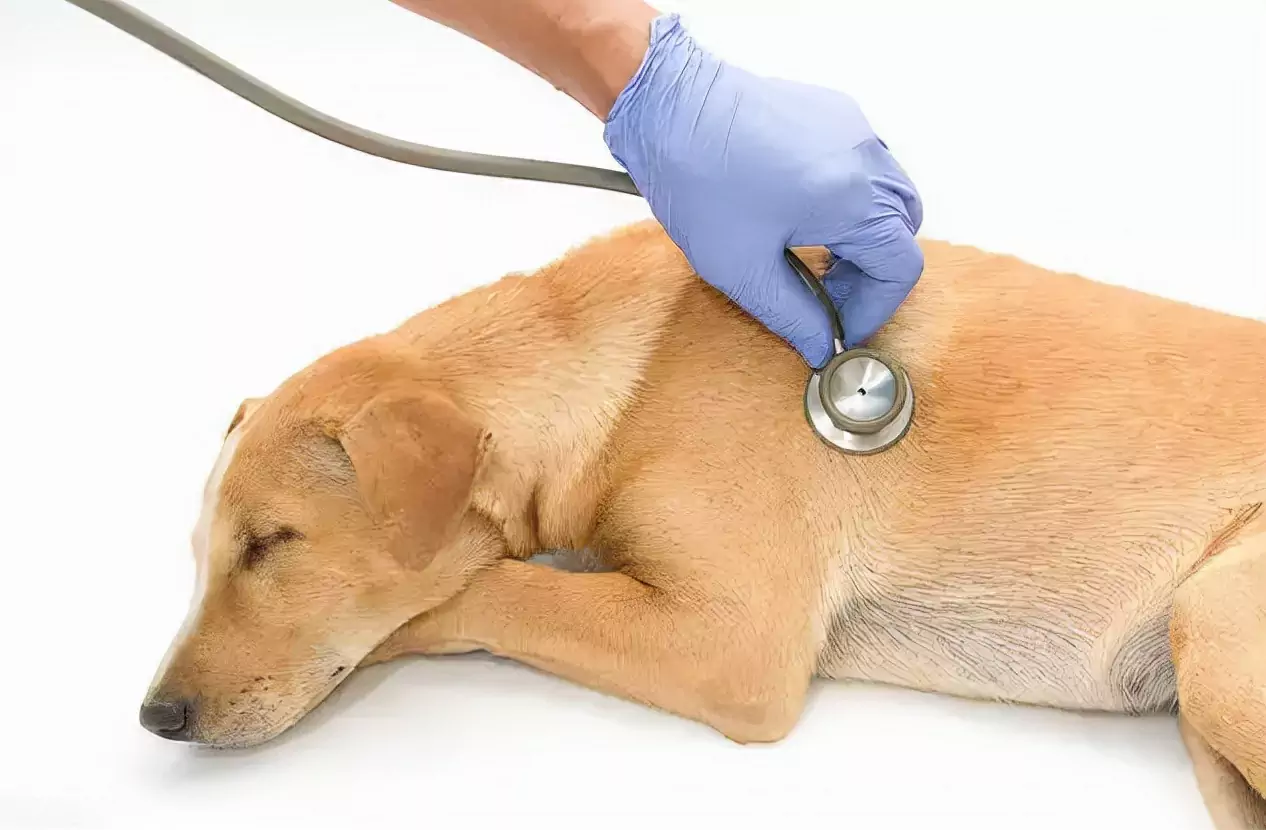Can dogs be bitten by mosquitoes?
2022-07-07
I. Dogs get bitten by mosquitoes or make heartworm on their bodies
Heartworm is a parasite in dogs, but this is not an ordinary parasite, it is the big boss in parasites! It can not only grow up to 30 cm but also live up to 7 years! Not only that, but it also has a terrible lethality. It is usually found in the right atrium and pulmonary artery of the dog, and if not detected in time, it can cause severe lung disease, heart disease, and even death. For this reason, heartworm disease is also known as the "invisible killer" of dogs!
What is canine heartworm disease?
Heartworm disease is a serious disease that can cause severe lung disease, heart failure, other organ damage, and death in dogs. Heartworm disease is not transmitted directly from dog to dog but requires the bite of a mosquito. When a dog is bitten by a mosquito, the mosquito carries heartworm larvae that enter the dog's body. After about seven months of growth, the larvae develop into adult heartworms and invade the dog's heart, lungs, and blood vessels.
An adult heartworm can be 15-30 cm long, and generally have a life span of 5-7 years. When mosquitoes bite dogs, these larvae will be spread to other dog mosquitoes. In this way, the dog mosquito dog closed chain of transmission is complete. The scary part is that dogs may have anywhere from 1 to 250 heartworms in their bodies.
Symptoms of canine heartworm disease
The severity of heartworm disease is related to how many heartworms are in the dog, how long the dog has been infected, and how the dog's body responds to heartworms. The dog's activity level also affects the severity of the disease and when symptoms first appear. There are four stages of heartworm disease, and the later the stage, the more severe the disease and the more pronounced the symptoms.
Dogs can be bitten by mosquitoes or have heartworms on their bodies! Without timely treatment, this "invisible killer" can kill
Stage 1: no symptoms or mild symptoms, such as occasional cough.
Stage 2: mild to moderate symptoms, dogs may occasionally cough after exercise or feel tired.
Stage 3:More severe symptoms, such as weakness, persistent coughing, or even refusal to exercise, and signs of respiratory distress and heart failure are common. For stages 2 and 3 of heartworm disease, changes in the heart and lungs can usually be seen on chest x-rays.
Stage 4:Also known as Kaval syndrome. The heartworm burden is already so heavy that the blood flow back to the heart is blocked by a large number of heartworms. Kaval syndrome can be life-threatening, and surgery to clear the heartworm is the only treatment option. However, surgery is risky, and even surgery can kill a dog.
Of course, not all dogs with heartworm disease will develop Kaval syndrome. But failure to detect or treat heartworm disease promptly can also damage a dog's heart, lungs, liver, and kidneys, and even lead to death.
Treatment & Prevention of Canine Heartworm Disease
Mirasomine dihydrochloride is an arsenic-containing drug that kills adult heartworms in dogs. The drug is effectively treated for stages 1-3 of heartworm disease by deep dorsal intramuscular injection. In addition, imidacloprid and moxifloxacin can also be used to remove microfilariae from the dog's blood. In the case of dogs with Cava syndrome, then the only way to remove heartworm from the heart is through surgery.
Of course, the best way to prevent heartworm disease is to get regular vaccinations and deworming. However, before vaccination, it is best to check for heartworm infection through blood tests. Your dog will likely have an adverse reaction to the vaccine if it is infected with heartworms.
In addition, for early detection of heartworm, owners should take their dogs for regular physical examinations. However, if a dog is examined before 6 months of age, likely, heartworms will not be detected because they are not fully developed in the puppy. Therefore, it is recommended that owners bring their dogs in for physical exams every six months to a year after they are 7 months old. The veterinarian will take the dog's blood for adult worm antigen testing and blood smears, as well as x-rays and ultrasounds, to determine if the dog has heartworm parasites based on the dog's past medical history.
Don't think that vaccinating and deworming your dog is a hassle, but many diseases and parasitic infections can be avoided through this work. If you want your dog to be disease-free, it is important to provide him with a healthy balanced diet, plenty of exercise, and a clean and tidy environment, as well as regular vaccinations and deworming!

II. How to avoid mosquito bites in dogs
Summer is here and mosquitoes are back in abundance. These little things that don't seem to do much harm to humans can be unpleasant to bite.
This time you may be envious of the dogs around you because after all, they are covered in hair, and should not be bothered by mosquitoes, but the real situation is that mosquitoes can bite dogs, and the damage will be greater.
Do not look at the dog all over the hair, but some parts that are not too much hair covered, such as the eyelids, and the bridge of the nose are the target of the mosquito's attack.
As with humans, if the dog is bitten, there will be a large bag, and itchy skin, if not found in time, the dog will keep scratching, very easy to cause skin breakdown, and even inflammation and pus situation.
The reason why mosquitoes can cause more damage to dogs, that is, mosquitoes will also carry a parasite called canine heartworm, which can be injected into the body of the dog through the bite of the mosquito, the host.
This parasite is mainly found in the heart, lungs, and blood vessels of dogs, causing serious damage to their organs. This disease is most common in hot and humid areas, but it can also occur in other areas during the summer months.
With that said, how do you avoid mosquito bites in dogs?
In the evening and early morning, mosquitoes are more active, which is the peak of their food, so try to avoid these two times when walking your dog in summer, which can be a little later or earlier.
And also regular deworming of dogs, and less go to the grass, to effectively reduce the infestation of mosquitoes to dogs.
In our daily dog breeding process, inevitably encounter more mosquitoes a season, inevitably, during these periods, the dog may be mosquito bites, and dogs in the mosquito bites inevitably will produce some allergic reactions. Mainly will appear some bun, or more itchy a reaction, these are normal reactions. We encounter this situation, how to deal with it? First of all, I do not recommend is to shave the dog, most dog, generally is not too easy to be mosquito bites too, once the mosquito bites, in most cases, may be caused by shaving. Because the hair is not only insulation but also to a certain extent, to reduce the possibility of it being mosquitoes or other parasitic bites. So, if we want to prevent this from happening, try to reduce the risk of shaving a dog, the remaining parts, such as the eyes, such as the nose, and even around the mouth, there may be mosquito bites too. During this period, we need to do a certain amount of anti-mosquito measures, such as some mosquito incense or use some mosquito repellent or insect repellent spray can be to a certain extent, to prevent the emergence of this situation.
#
Mosquitoes
#parasites
#being bitten by mosquitoes
#insect repellent
#symptoms
#stage
#vaccine
#examination
#blood
Was this article helpful to you?
Other links in this article
English:
Can dogs be bitten by mosquitoes?
Nederlands:
Kunnen honden door muggen gebeten worden?
Português:
Os cães podem ser mordidos por mosquitos?
português (Brasil):
Os cães podem ser mordidos por mosquitos?
русский:
Могут ли собак кусать комары?
中文简体:
狗会被蚊子叮咬吗?
中文繁体:
狗會被蚊子叮咬嗎?
Comments

Why is my dog throwing up?

Why does my dog keep coughing?

How many months is a dog pregnant? Signs and Phenomena of Dog Pregnancy

How do dogs grow fleas? Ways to get rid of fleas on dogs

Can dogs get diabetes?

Can dogs be depressed?

Why does my dog keep sneezing? Causes of Sneezing in Dogs

Can dogs catch a cold? Cold and Flu Symptoms in Dogs

What causes heart disease in dogs

Can dogs get urinary tract infections?









